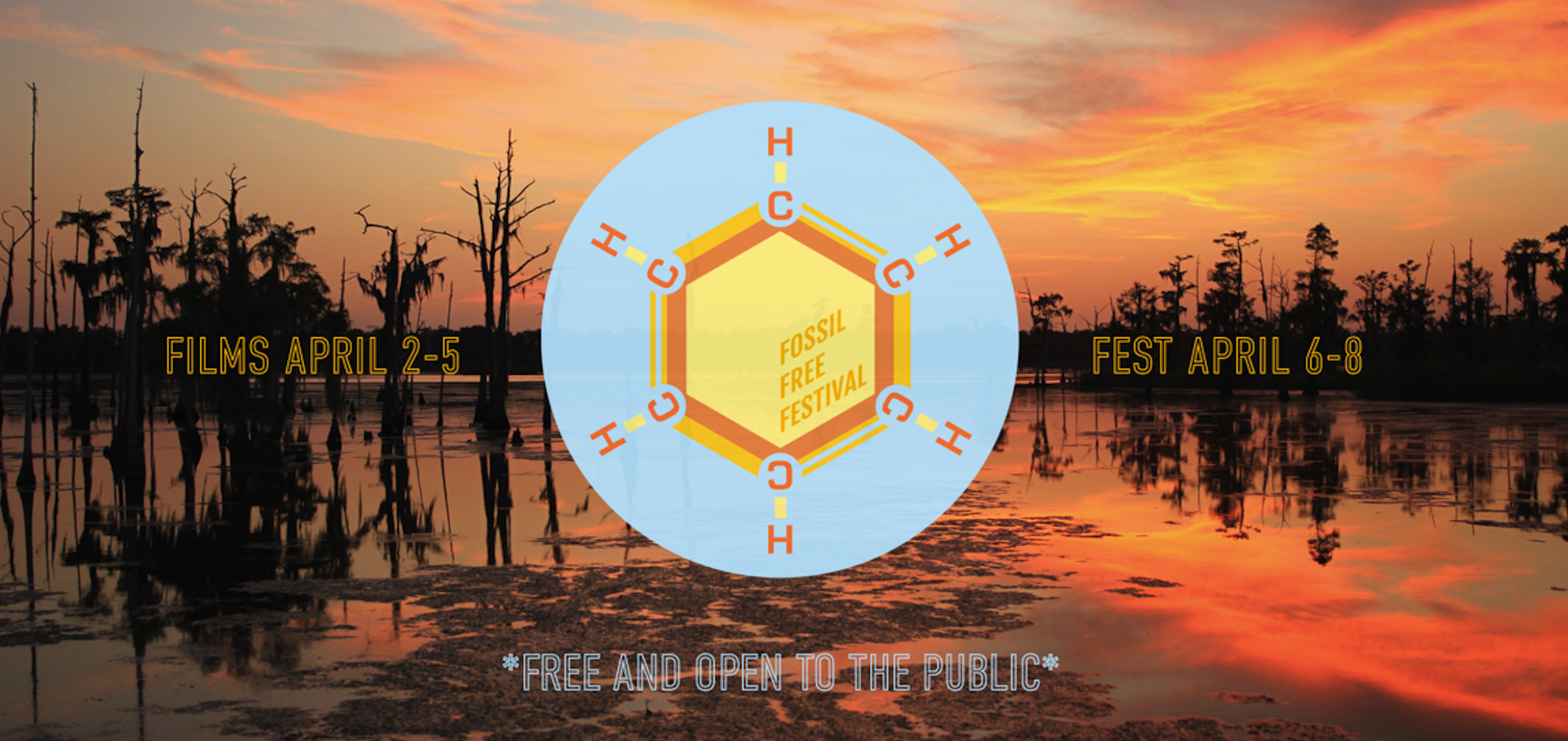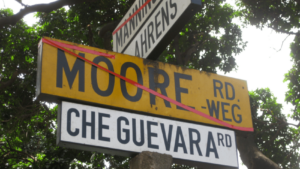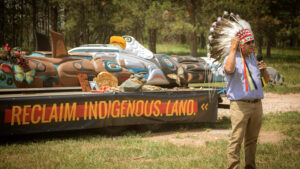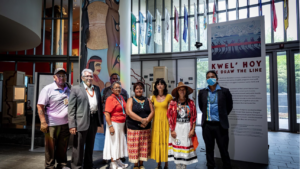Presented by Antenna, and organized by Imani Jacqueline Brown, Monique Verdin, Raquel de Anda, Katie Mathews, and Jayeesha Dutta.
A week of music, art, food, film screenings, conversation and workshops carving out a dedicated and open space to dig deep into the ethics and complexities of funding art and education with fossil fuel money and to imagine a #FossilFreeCulture. Fossil Free Fest invites everyone—arts workers, industry workers, educators, funders, and the general public—to imagine and plan our Fossil Free Future.
April 7, 9am – 7pm: “Complicity”
Keynote by Beka Economopoulos of Not An Alternative. Environmental Justice Tour by Hidden History and Louisiana Bucket Brigade (departure from and return to Joan Mitchell Center) and afternoon keynotes and facilitated group discussions. Performances by Sacramento Knoxx and Quintron and Miss Pussycat. “Complicity” session facilitated by Jackie Sumell. Bring Your Own Stories + FFF Present: “Action!”. Energy Fair presented by Alliance for Affordable Energy, EnergyWise and the Green Project. Lunch by Brown Girl Kitchen. Coffee and pastries by Shake Sugary.
In an era of massive defunding of the public sector, non-profit arts and educational institutions are struggling. Oftentimes, our search for support for our work leads us to accept funding from sources we may consider contentious, such as oil and gas or petrochemical corporations. We accept this money with some discomfort but without hesitation; after all, we tell ourselves, all money is questionable, the world needs our work, and we need to pay our rent.
According to BP Executive Vice President Dev Sanyal, companies cannot operate “sustainably” without the support of society. This support is termed by the industry as a “social license to operate,” a metaphorical concept that indicates that society has sanctioned the actions of the company, trusting that the benefits of its operations outweigh the costs to society. By accepting the financial support and, as an imperative, the branding of fossil fuel corporations, are we granting these companies a social license to operate?
Rarely do we create the time and space to deeply examine as individuals and institutions the connection between our work and the operations of our funders. Does oil and gas funding affect the tone, quality, or content of public dialogue about climate change or even overt censorship? What is our role and responsibility and where is our agency when it comes to climate change? As society moves away from reliance on fossil fuels, how can we build sustainable lives and practices, economically, ecologically, and socially? How can we and solidarity across occupational divides and unite as workers of arts, education, and industry and, most importantly, as members of a shared Louisiana community?







